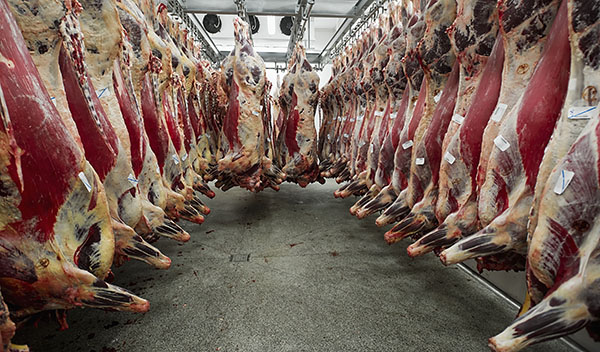EU beef production will continue to fall in 2022
Despite attractive prices for producers, beef will remain scarce and expensive next year. Germany is particularly affected.
Prices for beef cattle in the European Union are now higher than they have been for many years. The reason is the lack of supply compared to the buoyant demand, which is also spreading to the world market. In its current fall forecast, the EU Commission expects deficit trends to continue in 2022, as Community beef production is expected to fall even more sharply than this year.

From January to July 2021, beef production in the EU member states decreased by 1.2% compared to the same period last year to 3.95 million tons. However, due to high feed costs and producer prices, Brussels analysts expect an increase in slaughter in the second half of the year, the full-year decline is therefore expected to fall again to 0.5% for a good 60,000 tons, or 0.9%, to slightly lower 6.81 million tons. This is likely to be helped by the fact that in June the number of cattle in 13 main producing countries decreased by 0.6 y / y to 70.35 million head; cows decreased by 1.1% to 28.22 million head.
According to national experts from the Forecasting Group of the EU Commission, different production trends are expected in individual member countries in 2022. For example, net beef production in Germany is projected to decline by 5% to 1.04 million tons, and France, the largest producer in the EU, by 2.2% to just under 1.40 million tons Austria, the Netherlands and Spain will also produce less beef. In Ireland, however, production is projected to grow 6.2% to 615,000 tons in 2022 after a sharp drop in Brexit this year. Production is also expected to grow in Denmark, Bulgaria, Czech Republic, Slovenia and Sweden.
In its forecast, the EU Commission also expects EU beef consumption to decline by about 36,000 tons in 2022, or 0.5 y / y, to 6.55 million tons. However, this decline is expected to be less than in the industrial sphere. To compensate for this, EU analysts believe that beef imports by member countries should increase by about 10% to 354,000 tons. However, at present, beef is scarce and expensive on the world market. It is unknown if this will change in 2022. Here, too, a lot will depend on the world's largest importer, China, whose beef imports have grown steadily in recent years.
Source: meatinfo